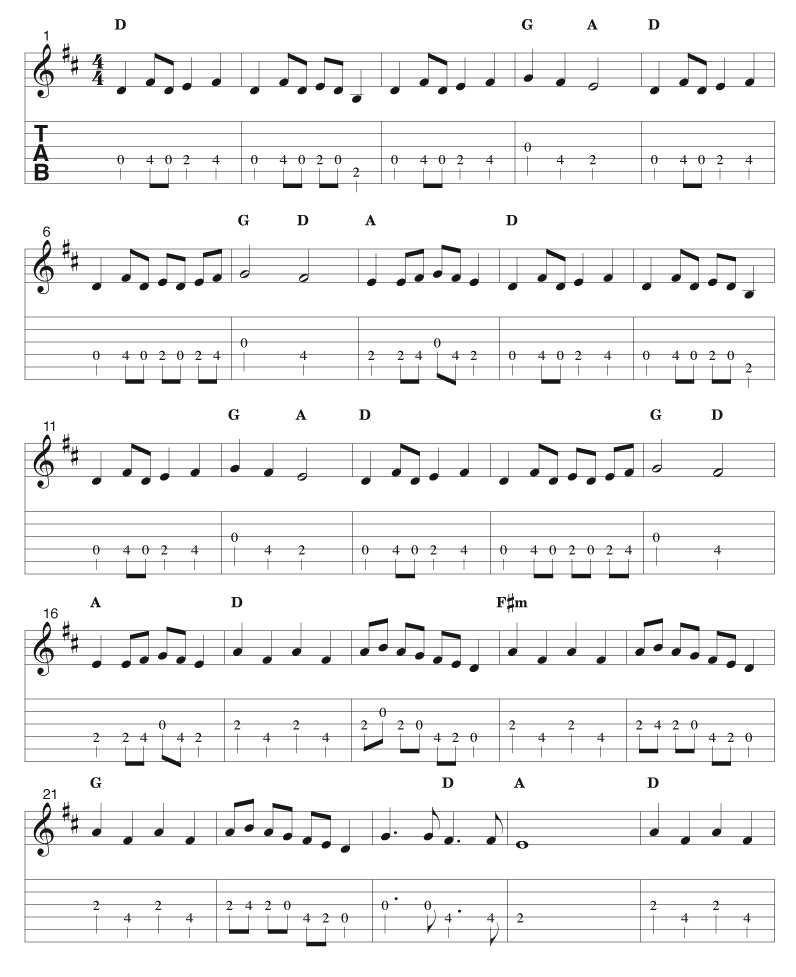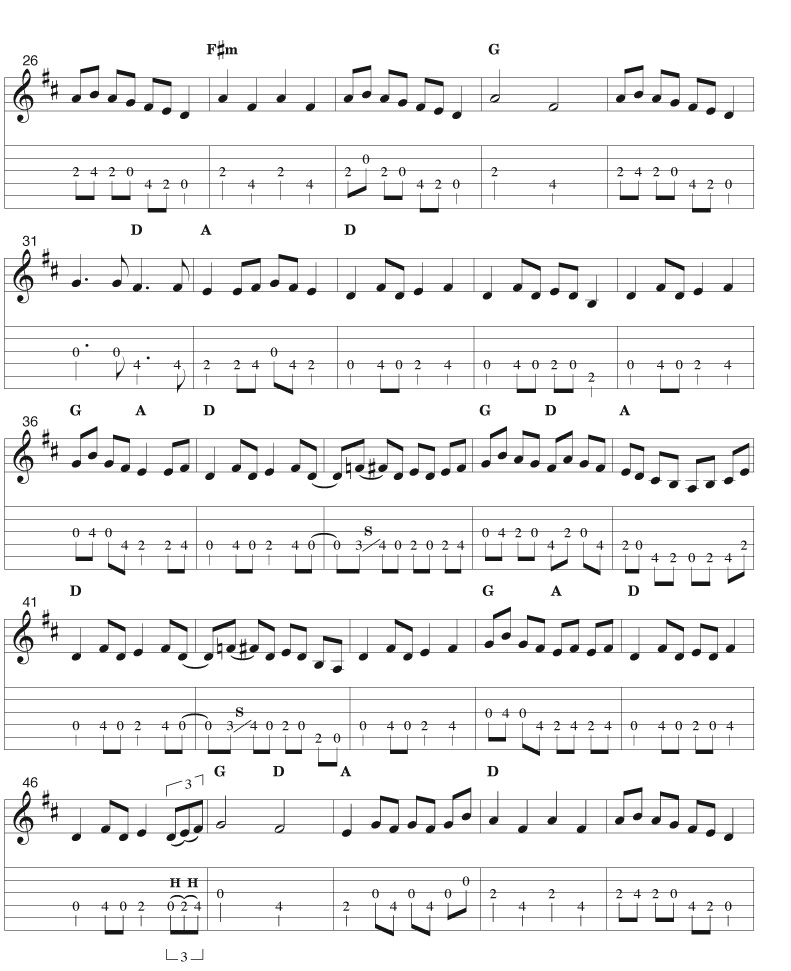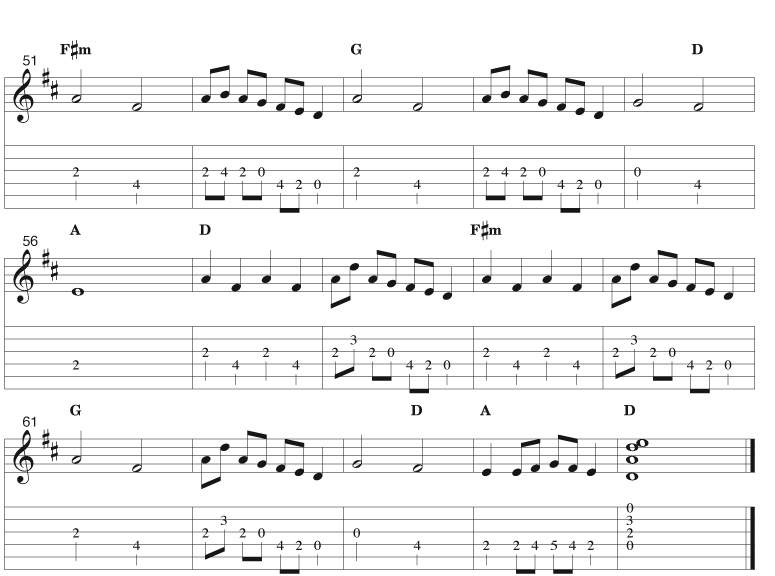|
January 2009 Free Flatpicking Lesson
from
Flatpicking Guitar Magazine
"John Stenson’s #2"
Arranged by Mickey Abraham
Welcome to
Flatpicking Guitar Magazine’s free lesson portion of our monthly
newsletter. It is my goal to make this a place where guitarists from
all over the world can look forward to learning about flatpicking
guitar. Past e-lessons have included picking techniques, building tune
repertoire, and developing an overall creative approach to music. This
month I’d like to further your knowledge with an old-time tune called
John Stenson’s #2. Unfortunately, I am unsure of the tune origin or how
it came to be known as John Stenson’s #2. I have come across an Irish
version called Stinsen’s Reel that was clearly the same tune, but it
utilized a different chord progression. I first learned this great tune
from my dulcimer friend, Aaron O’Rourke. We both loved this tune so
much we recorded it on the Aaron O’Rourke Trio release.
The form is a
simple AABB fiddle tune which makes it great for jamming and teaching.
For this lesson, I have notated two versions. While both versions are
extremely melodic, the second one is more challenging. In reality I
never really play the song the same way twice, but it always has a lot
of these ideas. Once you are humming the melody in your head and with
your fingers, you will find that it is pretty easy to mess around with
slight variations.
In music, less is
often more. What this means is that one not needs to fill up a song
with a bunch of notes or “hot licks” to be a good song. To be a good
song, the melody has to say something. John Stenson’s #2 is a great
example of how a melody can convey musical emotion with very few notes.
I particularly enjoy the use of long half notes to express the tag.
Sometimes leaving space makes the notes that you do play mean more.
One unique aspect
of this melody is how it never resolves. The phrases always end on the V
chord (A). At first, it may seem a little awkward to end each line on
the A chord instead of resolving to the D, but then you will soon
realize that this is the magic of John Stenson’s #2. While jamming or
performing this song you will have to add an extra D chord at the end
-- this way, it sounds resolved and finished.
While playing the
“B” section you will notice that the same phrase happens three times
before the tag (listen to the mp3).
The chords are changing underneath
the melody creating a different musical color each time that phrase is
played. The phrase is based out of a D major scale, and, when played
over the D, F#m, and G chords, the scale takes on a slightly different
flavor over each chord. This sound is very modern and, to me, creates a
“soaring” quality to this section.
This is a song that
is not to hard to learn and not to hard to teach! I have done my part
in spreading this wonderful piece -- now you must go and show this tune
to the world (aka your picking buddies). They will thank you for this
one. If you have any question on this e-lesson or any comments or
suggestions for future e-lessons, drop me a line at
[email protected].



|